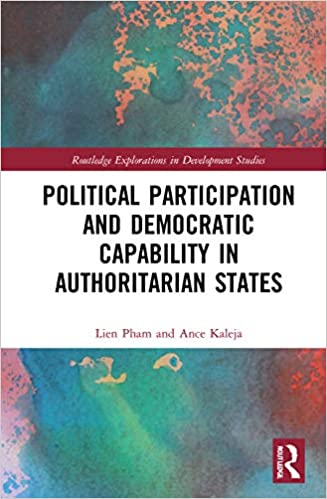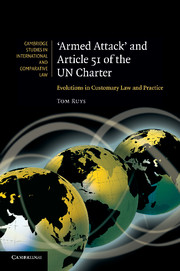This book provides an innovative theoretical and empirical exploration of the political participation and democratic capability of people living in authoritarian states. Merging perspectives from sociology and political science, the book demonstrates that despite autocratic restrictions on opposition, there is often still leeway for people to express themselves as political agents and to develop democratic capability.
The first two chapters problematise political participation and develop an interdisciplinary three-domain framework that allows for critical engagement with and appreciation of the contexts and varied ways in which participatory activities occur. This framework is applied to analyse six country case studies: Singapore, Jordan, Belarus, Cuba, Nigeria, and Vietnam. Drawing on a range of data sources and different analytical entry points, the book investigates the substantive opportunities people have in exercising political agency and the implications for democratic capability. The book concludes by summarising the emergent themes and examining the potential of applying this method of inquiry in other political contexts. Encompassing both governmental and societal practices, the book offers insights into state-society relations and their role in constructing political values and goals for participation, which people negotiate and mediate to inform their choices, modes, and forms of civic engagement. These insights present a broad approach towards the study of participation, with relevance for understanding political participation in various societies under non-democratic and democratic rule alike.
This book will be useful for researchers and students interested in political dynamics and intersections with economic, cultural, and social aspects of development. It will also be beneficial for practitioners interested in participatory actions and social change.
چکیده فارسی
این کتاب یک کاوش نظری و تجربی بدیع در مورد مشارکت سیاسی و قابلیت دموکراتیک مردمی که در دولت های مستبد زندگی می کنند ارائه می دهد. این کتاب با ادغام دیدگاههای جامعهشناسی و علوم سیاسی نشان میدهد که علیرغم محدودیتهای استبدادی در مورد مخالفان، اغلب هنوز فرصتی برای افراد وجود دارد تا خود را به عنوان عوامل سیاسی ابراز کنند و تواناییهای دموکراتیک را توسعه دهند.
دو فصل اول مشارکت سیاسی را مشکلساز میسازد و یک چارچوب بینرشتهای سه حوزهای را ایجاد میکند که امکان تعامل انتقادی و درک زمینهها و روشهای متنوعی را که در آن فعالیتهای مشارکتی رخ میدهد، فراهم میکند. این چارچوب برای تجزیه و تحلیل شش مطالعه موردی کشور: سنگاپور، اردن، بلاروس، کوبا، نیجریه و ویتنام استفاده می شود. این کتاب با تکیه بر طیف وسیعی از منابع دادهها و نقاط ورودی تحلیلی مختلف، فرصتهای اساسی مردم در اعمال عاملیت سیاسی و پیامدهای توانایی دموکراتیک را بررسی میکند. کتاب با خلاصه کردن مضامین نوظهور و بررسی پتانسیل استفاده از این روش تحقیق در سایر زمینههای سیاسی به پایان میرسد. این کتاب که هم رویههای دولتی و هم اجتماعی را در بر میگیرد، بینشهایی را در مورد روابط دولت-جامعه و نقش آنها در ساختن ارزشها و اهداف سیاسی برای مشارکت ارائه میدهد، که مردم برای اطلاع از انتخابها، شیوهها، و اشکال مشارکت مدنی خود مذاکره و میانجیگری میکنند. این بینشها رویکرد گستردهای را نسبت به مطالعه مشارکت ارائه میدهند که برای درک مشارکت سیاسی در جوامع مختلف تحت حاکمیت غیردموکراتیک و دموکراتیک به طور یکسان مرتبط است.
این کتاب برای محققان و دانشجویان علاقه مند به پویایی های سیاسی و تلاقی با جنبه های اقتصادی، فرهنگی و اجتماعی توسعه مفید خواهد بود. همچنین برای تمرینکنندگان علاقهمند به اقدامات مشارکتی و تغییرات اجتماعی مفید خواهد بود.
ادامه ...
بستن ...
ISBN-13: 978-0367375812
ISBN-10: 0367375818
ادامه ...
بستن ...










